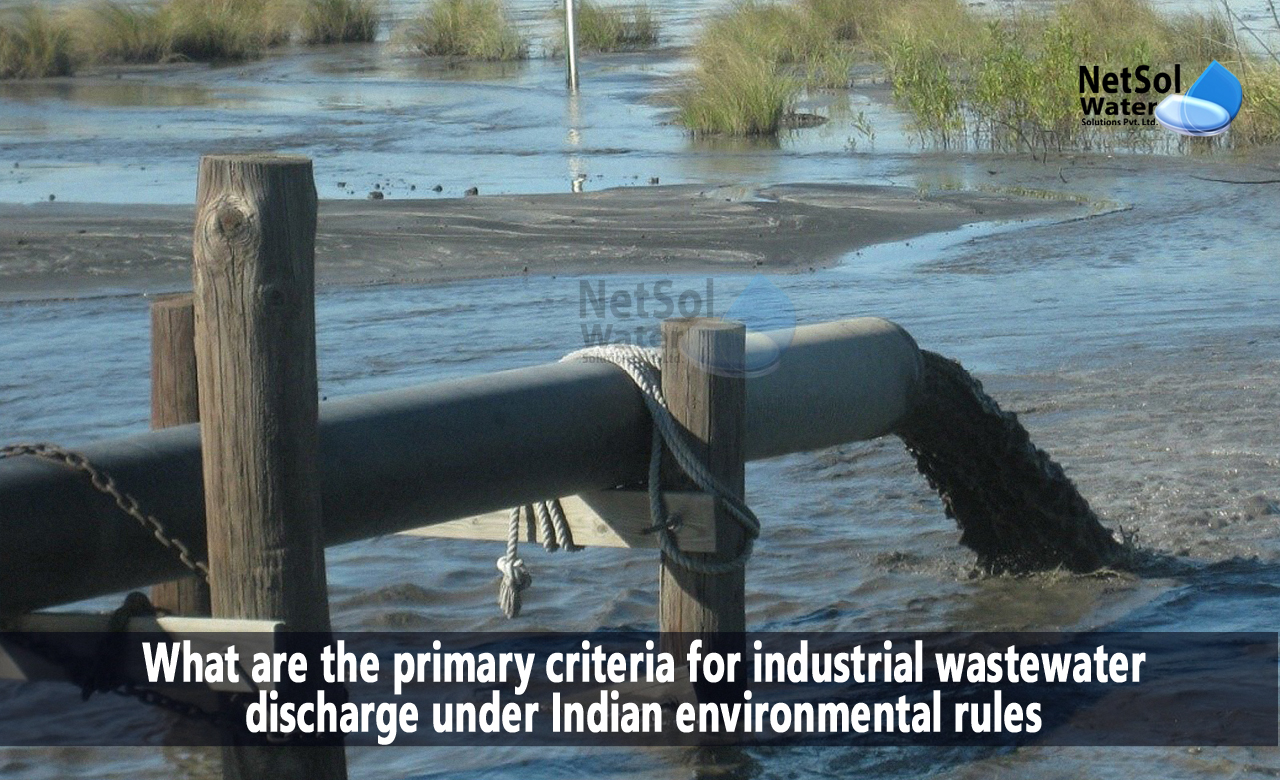Indian environmental rules: industrial wastewater discharge
Wastewater generated by industrial processes contains a diverse range of contaminants that, if not appropriately managed, can adversely affect the environment and public health. In India, the industrial sector is subject to stringent environmental rules and regulations to ensure that industrial wastewater is treated and discharged safely.
This blog will outline the significant criteria for industrial wastewater discharge under Indian environmental rules, highlighting the key parameters and standards that industries must adhere to.
Effluent Standards for Industries:
The Central Pollution Control Board (CPCB) and State Pollution Control Boards (SPCBs) in India establish effluent standards for various industries. These standards specify the maximum permissible limits for a wide range of parameters, including physical, chemical, and biological characteristics of wastewater. Parameters typically include pH, temperature, total suspended solids (TSS), total dissolved solids (TDS), biochemical oxygen demand (BOD), chemical oxygen demand (COD), heavy metals, and various toxic substances specific to the industry.
Categorisation of Industries:
Indian environmental rules classify industries into various categories based on their potential to pollute and the nature of their activities. Each category is subject to specific effluent standards. For instance, red category industries with high pollution potential are subject to stricter discharge standards compared to green category industries, which have lower pollution potential.
Zero Liquid Discharge (ZLD):
For certain industries, particularly those with high water consumption and pollution potential, the concept of Zero Liquid Discharge (ZLD) is encouraged. ZLD aims to recover and reuse as much water as possible and eliminate the discharge of liquid waste, ensuring minimal environmental impact.
Pre-Treatment of Wastewater:
Many industries are required to pre-treat their wastewater before discharging it into the municipal sewer system or natural water bodies. Pre-treatment involves removing or reducing specific contaminants, ensuring that the wastewater meets prescribed effluent standards. Pre-treatment processes often include chemical treatment, biological treatment, and filtration.
Emission Monitoring:
Industries are often required to monitor and report their emissions and effluent discharges continuously. This real-time monitoring helps regulatory authorities track compliance with environmental rules and take immediate corrective actions if violations occur.
Regular Environmental Audits:
Industrial units must conduct regular environmental audits to assess and report compliance with ecological standards. These audits help identify areas for improvement and ensure continuous compliance with the rules.
Consent to Operate and Compliance Reporting:
Before starting operations, industries must obtain "Consent to Operate" from the relevant pollution control authority. To maintain this consent, enterprises must regularly submit compliance reports detailing their adherence to environmental regulations.
Penalties for Non-Compliance:
Regulatory authorities in India can levy penalties and take legal action against industries that do not adhere to environmental rules. These penalties may include fines, suspension of operations, or even imprisonment of responsible individuals.
Community Engagement and Public Awareness:
Industries are encouraged to engage with local communities and raise awareness about their environmental initiatives. This helps build trust, address concerns, and promote a culture of environmental responsibility.
Conclusion:
Ensuring compliance with environmental rules for industrial wastewater discharge is vital to protect the environment, public health, and water resources in India. The Indian government, through agencies like the CPCB and SPCBs, continues to evolve and enforce stringent standards to manage industrial wastewater responsibly.
By adhering to these criteria, industries can minimize their environmental impact and contribute to sustainable development. Adequate wastewater treatment and responsible discharge practices are not only a legal requirement but also a crucial step towards a cleaner and healthier environment for all. It is the collective responsibility of industries, regulatory authorities, and society to work together to preserve the natural beauty and resources of India.
Netsol Water is Greater Noida-based leading water & wastewater treatment plant manufacturer. We are industry's most demanding company based on client review and work quality. We are known as best commercial RO plant manufacturers, industrial RO plant manufacturer, sewage treatment plant manufacturer, Water Softener Plant Manufacturers and effluent treatment plant manufacturers. Apart from this 24x7 customer support is our USP. Call on +91-9650608473, or write us at enquiry@netsolwater.com for any support, inquiry or product-purchase related query.



